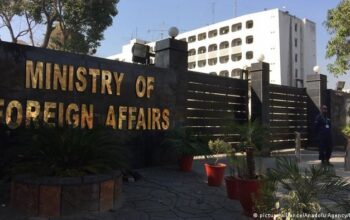By Staff Reporter
ISLAMABAD: The government has decided against lowering local petroleum prices despite a recent drop in global oil prices, opting instead to channel the savings into major infrastructure projects in Balochistan, the Prime Minister’s House said on Tuesday.
Prime Minister Shehbaz Sharif revealed decision during a federal cabinet meeting, emphasising that the funds would support the dualisation of the N-25 Highway—a key artery linking Chaman, Quetta, Kalat, Khuzdar, and Karachi—and the completion of Phase 2 of the Kachhi Canal, which is set to irrigate vast tracts of agricultural land in Balochistan.
“Instead of passing on the reduction in international petroleum product prices to consumers, the saved amount would be used for dualising the critically important N-25 Highway to provide better travel facilities to the people of Balochistan,” Sharif said, as quoted in the official statement.
“From a political and social perspective, it’s time we addressed the disparity. While motorways run through many parts of the country, Balochistan has waited far too long. We will now change the fate of the N-25, from being a highway of tragedy to a highway of prosperity.”
Sharif said the “decision reflected the national commitment to Balochistan’s development and an end to years of neglect”.
He also instructed that the highway, that had claimed more than 2,000 lives in recent years due to its poor condition and single-lane structure, restoration meet motorway standards to ensure enhanced connectivity.
“The Rs300 billion reconstruction project would now move forward under federal government’s supervision, with third-party validation to ensure high standards,” Sharif said. “We will build this as a top-class road, and I, along with Balochistan Chief Minister Mir Sarfaraz Bugti, will personally supervise the progress.”
The highway was first approved in FY2022-23, but progress stalled due to funding gaps.
“The revival of the project is now being supported by a reallocation of resources made possible by falling global petroleum prices. Rather than passing on the full relief to consumers, the government opted to invest in strategic infrastructure,” the prime minister said.
Additionally, the savings would also be used to complete Phase 2 of the Kachhi Canal, which would irrigate hundreds of acres of land in Balochistan and bring prosperity to the province and the entire country.”
“If completed, this project will irrigate vast area of Balochistan’s arid land. It can transform agriculture, improve livelihoods, and address food security. The only condition is hard work,” Sharif said.
In a related move, the cabinet, acting on the Petroleum Division’s advice, approved amendments to the Petroleum Products (Petroleum Levy) Ordinance, 1961.
These changes are projected to increase national revenue, though specifics remain undisclosed.
The decision comes as industry officials had projected a decline in fuel prices for the fortnight ending April 30, driven by falling global rates.
Experts estimated that petrol and high-speed diesel (HSD) prices could have dropped by about Rs10 per litre, based on a $6 per barrel decrease in international petrol prices and a $5 per barrel reduction in HSD over the past two weeks.
At present, the ex-depot price of petrol is Rs254.63 per litre, while HSD stands at Rs258.64 per litre. In the prior fortnightly review, effective until April 15, the government trimmed petrol prices by Re1 per litre but left HSD unchanged.
Despite the general sales tax (GST) on petroleum products being set at zero, the government levies a total of approximately Rs86 per litre on both petrol and diesel. This includes a Rs70 per litre petroleum development levy and a Rs16 per litre customs duty. Separately, oil companies and dealers receive about Rs17 per litre in distribution and sale margins.
Analysts however said the choice to maintain fuel prices risks public discontent as in its last review, the government trimmed petrol prices by just 1 rupee per litre, drawing criticism for minimal relief.
For now, motorists will see no respite, with the government banking on infrastructure gains to offset short-term economic strain, they added.
Copyright © 2021 Independent Pakistan | All rights reserved




